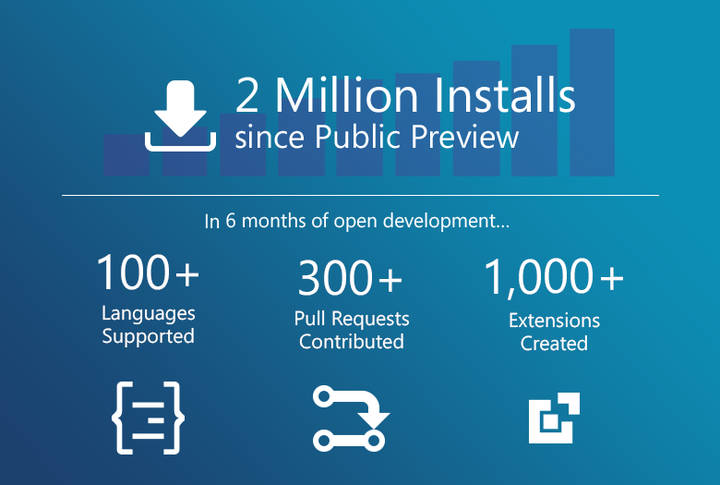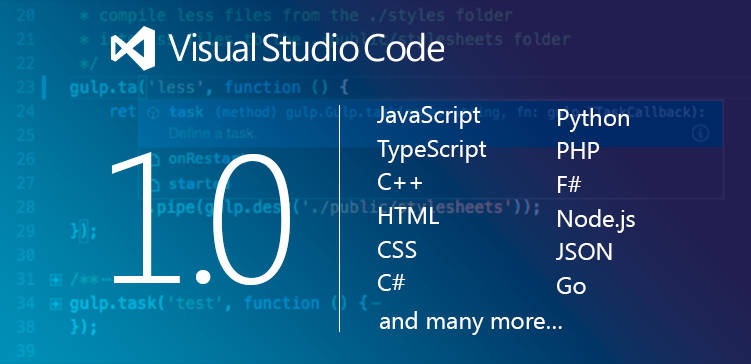| Visual Studio Code Reaches Version 1.0 |
| Written by Mike James |
| Wednesday, 20 April 2016 |
|
Visual Studio Code, Microsoft's free and open source editor, has reached version 1.0. This is a rare milestone as open source projects usually spend their entire lives in perpetual beta. Visual Studio Code is also proving to be an inexplicable success.
The first potential misunderstanding to clear up is that Visual Studio Code has very little to do with Visual Studio. It is a code editor and not a complete IDE - it's not even remotely like Visual Studio proper. It is open source under a MIT license and development has been conducted on GitHub. It is cross-platform and, in particular, runs on Linux - another proof that Microsoft doesn't hate Linux any more. From a bigger perspective Visual Studio Code is a spin off from Microsoft's need for an in-browser code editor to use in conjunction with Azure. Visual Studio Code is based on Node.js and developed from Electron and Chromium. It is ironic that it is based on Electron which is also the base for GitHub's Atom Editor, which is its obvious competitor. Microsoft seems to be pleased with its 300+ pull requests and claims 2 million installs and 500,000 active users:
The project started out as just being an editor for JavaScript and TypeScript, which is reasonable as it is implemented using Node.js. However, for reasons that aren't clear, the fact that it could be extended has encouraged people to add support for just about any language you can think of. There are now extensions for C++, C#, Python, F#, Go and so on. These extensions tend not only give you the ability to edit code, but also to add syntax highlighting and even debugging in some environments.
Highlights of the version 1.0 release are:
What I find suprsing is that a code editor can come from nowhere and achieve such a level of popularity overnight. I can see that a cross-platform editor might be attractive for languages such as JavaScript where compilation isn't required, but when a tool chain is involved in getting to a runnable anything why restrict yourself to an editor? When you compare what Visual Studio Code gives you against other open source cross platform "editors" such as NetBeans, why have 500,000 programmers settled for less? The NetBeans editor gives you syntax highlighting, code completion, refactoring and more without the need for extensions for JavaScript, HTML, PHP, C/C++ and even Java. Other languages can be added to NetBeans with third party extensions. What is more, from NetBeans I can click run or build, or clean build and sit back and wait for the finished product without doing any additional work. I'm not saying that there aren't niche, even fairly large niche, situations where something light like Visual Studio Code is a good idea. But the extent to which it has been adopted, despite competition from reasonably established alternatives, is staggering. Visual Studio Code is a project that I would not have expected to have such success. Could it be something to do with its choice of name? More Informationhttps://code.visualstudio.com/ Related ArticlesVisual Studio Code - Now With Added Extensions Microsoft Releases Visual Studio Code IDE For Linux, Mac And Windows
To be informed about new articles on I Programmer, sign up for our weekly newsletter, subscribe to the RSS feed and follow us on, Twitter, Facebook, Google+ or Linkedin.
Comments
or email your comment to: comments@i-programmer.info |
| Last Updated ( Wednesday, 20 April 2016 ) |




